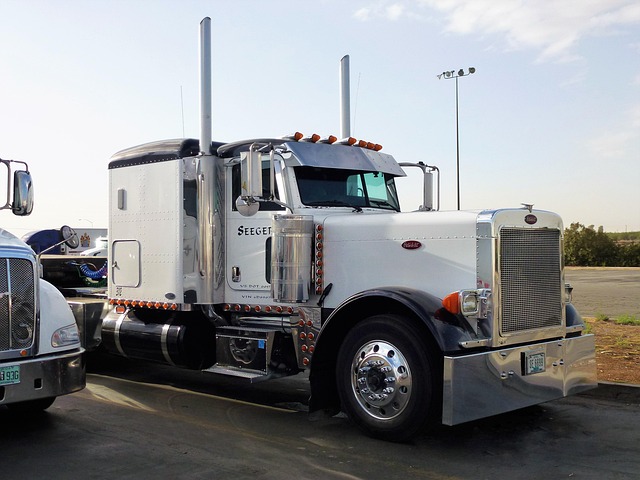Staying compliant with state and federal trucking regulations is vital for safety, fair practices, and avoiding fines. Affordable owner-operator insurance is a crucial solution, mitigating risks and providing peace of mind for owner-operators navigating complex rules. Key compliance areas include proper registration, vehicle maintenance, safety standards, weight classification, HOS rules, drug testing, hazardous materials handling, and record-keeping. Proactive strategies like tailored compliance programs, regular updates, and audits help maintain adherence while leveraging insurance protection against non-compliance liabilities.
Staying compliant with state and federal trucking regulations is non-negotiable for any transportation business. This comprehensive guide dives into the essential aspects of navigating these complex laws, focusing on both state-specific rules and broader federal guidelines. We explore the significance of affordable owner-operator insurance as a strategic tool for risk management. Key compliance areas are highlighted to ensure long-term success, offering practical strategies to help trucking operations maintain adherence and avoid costly penalties.
Understanding State and Federal Regulations for Trucking

Staying compliant with state and federal trucking regulations is non-negotiable for any trucker or trucking company, as it ensures safety on the roads and helps maintain a fair and regulated industry. These regulations cover various aspects, from vehicle maintenance to driver hours of service and cargo security. For owner-operators, understanding these rules is crucial for avoiding costly fines and legal issues.
Federal regulations, overseen by the Federal Motor Carrier Safety Administration (FMCSA), set the baseline standards for trucking across the nation. Meanwhile, state laws add their own specific requirements, which can vary widely from one state to another. Accessing affordable owner-operator insurance is a strategic move to protect against potential liabilities arising from non-compliance. By staying informed about these regulations and seeking expert advice when necessary, truckers can navigate this complex landscape effectively.
The Role of Affordable Owner-Operator Insurance

Trucking businesses and owner-operators face a complex web of regulations, and staying compliant can be a challenging task. Here, affordable owner-operator insurance plays a pivotal role in mitigating risks and ensuring peace of mind. With the right coverage, operators can protect themselves from potential financial burdens associated with accidents, damages, or legal issues that may arise during operations.
Affordable owner-operator insurance packages are tailored to meet the unique needs of independent truckers. These policies offer liability coverage, protecting against claims for injuries or property damage caused during transportation. Additionally, they often include medical payments and no-fault benefits for the operator and passengers, ensuring access to essential healthcare services in case of an accident. By securing such insurance, owner-operators can navigate the regulatory landscape with greater assurance, knowing they are prepared for unforeseen circumstances that may otherwise lead to substantial financial losses.
Key Compliance Areas to Focus On

Staying compliant with state and federal trucking regulations is a cornerstone for any successful trucking business, especially for affordable owner-operator insurance providers. Key areas to focus on include ensuring that all vehicles are properly registered and inspected according to set standards. This involves regular maintenance checks to guarantee roadworthiness, safety features like brakes, lights, and tires meet regulatory requirements, and the vehicle’s weight capacity is correctly classified.
Additionally, understanding and adhering to hours-of-service (HOS) regulations is vital. These rules dictate the maximum driving time and required rest periods for truckers, aimed at preventing fatigue and enhancing safety on the road. Other critical aspects include drug and alcohol testing programs, proper handling and transport of hazardous materials, and maintaining accurate records for driver training, trips, and inspections. For owner-operators seeking affordable insurance, compliance is not just a legal obligation but also ensures their business remains competitive and protects their investment.
Strategies for Maintaining Long-Term Compliance

Staying compliant with state and federal trucking regulations is a continuous process that requires proactive strategies to maintain long-term adherence. One effective approach for owner-operators is to implement a comprehensive compliance program tailored to their specific operations. This involves regularly reviewing and updating policies, procedures, and training materials to reflect the latest regulatory changes. By staying informed about upcoming deadlines and revisions, owner-operators can ensure they’re always meeting the required standards.
Additionally, leveraging affordable owner-operator insurance can provide financial protection against potential compliance-related liabilities. Such insurance plans are designed to cover legal expenses and damages arising from non-compliance, offering peace of mind and financial safeguard. Regular audits and self-assessments are also valuable tools for identifying areas that may need improvement, allowing for timely adjustments and preventing costly penalties or disruptions in trucking operations.
Ensuring compliance with state and federal trucking regulations is non-negotiable for any trucking business aiming for long-term success. By understanding these regulations, investing in affordable owner-operator insurance, and focusing on key compliance areas, operators can navigate the complex landscape effectively. Strategies such as staying updated, maintaining detailed records, and fostering a culture of safety are essential to mitigate risks and avoid penalties. Ultimately, adhering to these guidelines not only protects against legal issues but also fosters a reputation for integrity, ensuring the trucking business thrives in a competitive market.
